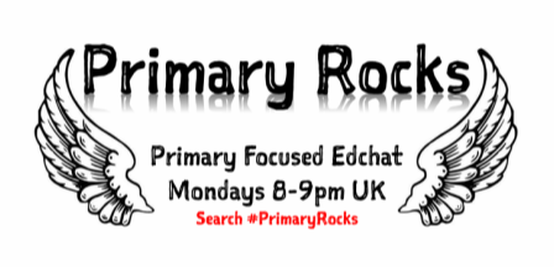|
All children should be given equal chances to do the best that they can in our classes - agreed. This is why teachers are often asked to focus on key groups (depending on schools, their cohorts and their latest Ofsted reports).
Indeed, eliminating the well documented learning gap goes to the heart of why some of us decide to work in the school in which we do. There can be little argument that there is a moral purpose behind helping those classified as Pupil Premium. This group is one that my school are currently focussed upon as it is clear that their progress in writing is less than that of non-PP and they are a group who generally might not have the same exposure to experiences outside of school. This group have a complex range of needs and are a mixed ability group of learners but, with a few simple adaptations and some not-so-simple-but-worth-it ideas, children who are at a disadvantage in life will be catered for as equally as others. I'd like to add, that I'm not a big fan of grouping children, but actually when it comes to analysing data and providing the best learning we can for all children, I believe it is vital to be aware of these categories and the patterns that may exist. Equally, I have children who are not technically 'pupil premium' and won't be because of a matter of pennies earned by their working-four-jobs parents. These children fall into the same learning gap as our PP children in many areas, some in fact more so. Due to this issue with the grouping system, I have a slightly larger unofficial 'PP group' as I include these peripheral pupils in each of the following: Feedback first I stole this from a secondary colleague as it just makes sense: Top of the pile/first in your queue (however you give feedback is fine by me), you're fresh as a daisy, feedback will be clear and these books will be first to be handed out so they have most time to edit and improve their writing. Peer pair They have a buddy who is not necessarily the person they sit next to, with whom they can go to for help with ideas at the beginning and when editing throughout. Lack of ideas can be a real mental block for anyone. When writing a narrative for example, lack of exposure to different plot lines from which to inspire their own story is a hindrance. Thus they go to their buddy with their story mountain to discuss what could happen and if their idea makes sense. Parent partnership There are easy ways to ensure parents are involved with school. For some, this isn't a problem PP or no PP. There are things we do as a school: newsletters, assemblies and parents evenings. When these aren't being used by PP parents they need tweaked. How does parental engagement help children's writing you ask? Well, their parents become more interested generally. Why would the children want their writing photographed for the blog if no-one was looking at it? Why would the children enter the competition to design the disco poster if they knew they wouldn't be going? Why would the children want to write something for the class assembly if their parents can never go? Why would they work their hardest if their parents have no contact with us to find this out? Here are a couple of simple fixes: 1. Parents have reminders about parents evenings: blog, messages, at the door, in the school bag. 2. Parents evening slots are created/juggled/extended - often we aren't in their working hours. Meeting over the phone is not unusual and I’ve recently done this during the mum's break at the hospital. 3. Videos and pictures of children during class assemblies 4. Pictures of newsletters and letters so they actually get home (4.5. Getting parents in to help set up email while colleague plays with 4 kids, so all letters are emailed so can't get lost and why not Class Dojo while you’re at it?!) 5. Free non-uniform day ideas sent to all parents via Class Dojo (notifications on phone) 6. Simple messages home about getting eyes tested, changing their lunches or even reminders about discos. Teacher time There are little slots in the day when I make sure I see all PP children: // At the door in the morning, after break and after lunch: this is for all children, but essential to welcome them back into our space leaving everything else at the door ready to learn. // Preliminary mini plenaries: During any writing, I'll gather these children and we'll then have a look at a couple under the visualiser to assess together. This small group has had expectations modelled again and can go and edit and continue writing knowing they're on track. // After lunch, during handwriting, I will ensure I go and look at each of theirs and have a little tête-à-tête about what and how they're writing. Experiences I have just finished the co-planning of a 6 week writing project for the PP pupils (including our peripheral PP) across the year group. It's a lesson a week, but requires daily writing in their very own special book. It involves collaboration with a high school in Brighton and their Y8/11 pupils using us as a revision and pupil-leadership programme. Each week there will be communication between the two sets of pupils, including a field trip one week. This communication and the learning that comes from it will be the inspiration and encouragement for writing for a variety of purposes. Not only that, but their audience will widen to older children and their teachers as well as the unknown audience of a geocache. If there were a learning goal, it would be 'to develop an enthusiasm for writing through a series of collaborative geography focussed lessons'. Updates will be available just before Easter hols! Keeping these PP children at the back of our minds ensures they don't get lost in the day to day hubbub and get opportunities similar to their peers. Indeed, if we don’t accelerate the learning of these pupils; give them the cultural capital that they will need in order to negotiate secondary school and address their deficiencies in writing, reading and maths, who will? We could leave it for the next year group/key stage/ school to worry about, or we could nip it in the bud now. By Leah Sharp @Leah_Moo
3 Comments
|
Primary RocksThe primary focused edchat - Mondays 8-9pm UK time Archives
April 2017
Categories
All
|


 RSS Feed
RSS Feed